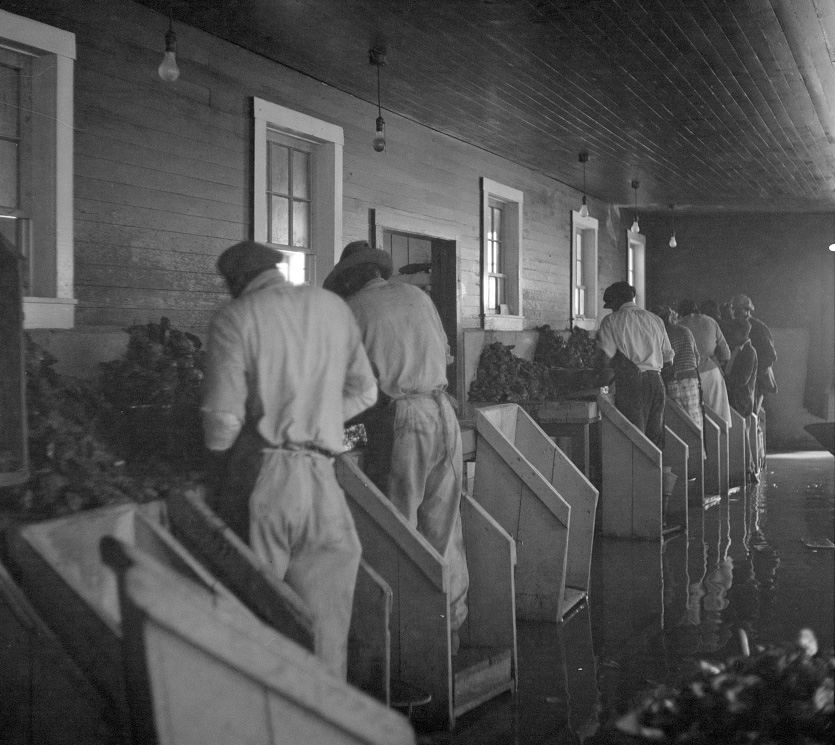
Seafood processors shuck oysters in a processing plant in Rock Point, Maryland.
Credit: Library of Congress
Seafood Processing Songs
Essential Question:
African American Seafood Processing and Song
African American seafood processors worked in complicated and often uncomfortable conditions. Singing songs like spirituals while working became an essential part of the process.
In the video below, commentators Pete Lesher and Admiral Vince Leggett describe the working conditions of crab pickers and oyster shuckers. Admiral Leggett also shares a primary reason that seafood processors sang while working – to keep meter (or rhythm).
Think about the following questions as you play the video:
- Why did seafood processors use music to pass the time as they performed repetitive tasks.?
- What did it sound like as workers performed these specific tasks?
- What other reason(s) do you think seafood processors sang while working?
Let’s listen to another example of seafood processors singing while working. In this recording from the Baltimore Museum of Industry, you will hear Rock Hall Oyster Shuckers performing the spiritual “Steal Away” as they would have while shucking oysters. Listen closely and you can hear the sounds of oyster shells falling into a pail. You may also notice that singers in this example use a slower tempo than in previous examples. Workers would often establish the beat and tempo of a song based on the task they were performing.
Credit: Baltimore Museum of Industry
Check Your Understanding
We have explored spirituals and a few of their musical characteristics. From your listening and analysis, write down three characteristics that make spirituals good songs to accompany work. Test your responses against the answers below.






